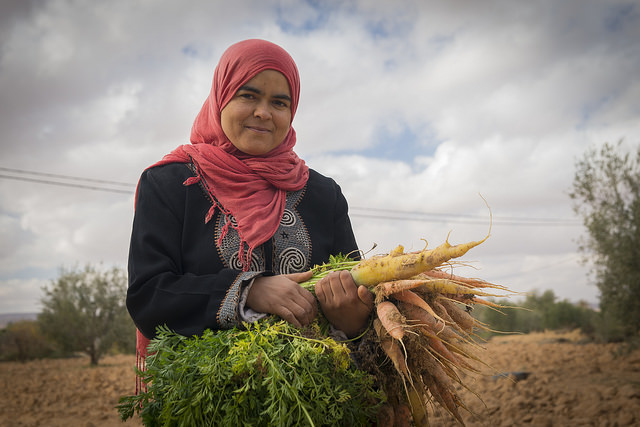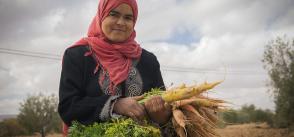
Women's informal groups and their impact on irrigated agriculture in Tunisia
In Tunisia although there is a feminization of agriculture, women are scarcely involved in irrigators’ organizations, and more comprehensively in decisions concerning the organization of agricultural production and the use of water.
The expertise and experience of women in irrigation agriculture are not taken into account in regions where there's a predominance of patriarchal structures. These women are invisible actors of the expansion of this agriculture, they are essential but they are marginalized. To reduce these inequalities, women take initiative: they stick to female informal groups. Women's groups not only enable women to better organize, but also enable them take care of themselves, reduce their vulnerability and foster dynamic affirmation. Indeed, women acquire new skills as members in these organizations. They are aware of the problems they face and the importance of their role in agriculture. These women mobilise to claim their water access rights on regular basis as well as rights to manage water collectively.
From the introduction:
Reviewing Tunisia’s agricultural policies since Independence one can make several observations. The top down governance with the long term state dominance as main development actor and manager of large schemes can explain the agricultural evolution with its failure to meet the national food security objective. Observed differences on farmlands could be explained by the technocratic and productivist conception of development that has prevailed.
The policies which were based on a negative perception of farming and peasantry have not met the expectations of small producers. These difficulties were also faced by farmers in Nadhour area which limited their capacity to evaluate the potential of irrigation and its constraints. A major effort was made by the Tunisian government to mobilise water resources and develop irrigation to cope with climatic and soil constraints in a country marked by aridity.
This research paper was submitted to "Rural Women Cooperatives and the Quest for Empowered Citizenship in the Arab World" call.
Download the full paper via KariaNet.
[Photo by CGIAR Research Program on Dryland Systems | Flickr]







